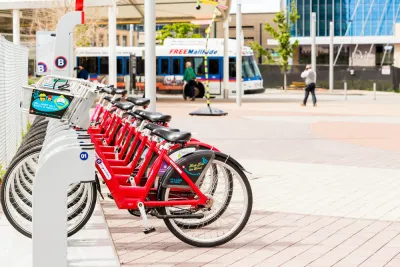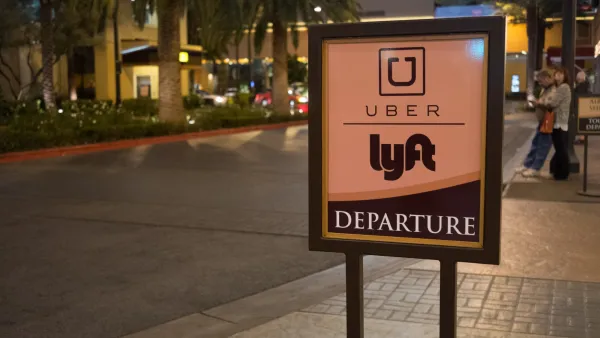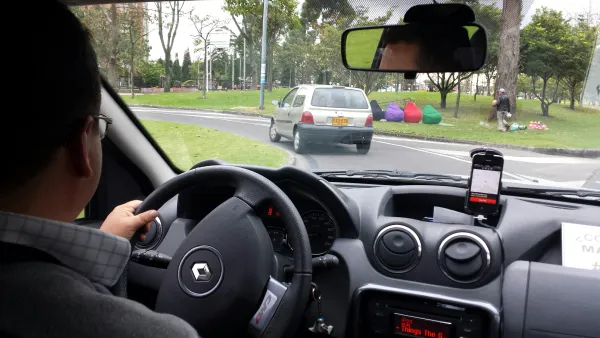A shared post by Regina Clewlow, CEO and founder of Populus.

As services such as Uber and Lyft have rapidly grown, cities have grappled with developing policies and transportation plans that can harness their potential to also meet public goals.
A significant problem is the absence of good data to measure the impacts that these services have on cities. Today, we launch a new program to put data in the hands of researchers who can answer important questions about the future of mobility.
Introducing Populus Data Grants
At Populus, we are excited to announce a new data grant program through which we will give researchers access to our proprietary data on the adoption and utilization of emerging mobility services, such as ridehailing (i.e. Uber, Lyft), carsharing, and electric scooters.
Our goal: to help leading scientists build a better understanding of how these services change our cities. Ultimately, research can enable data-driven policies that can help cities better harness the potential of private sector innovation to deliver safe, equitable, and efficient streets.
The Old Way No Longer Works
Delivering representative, high-quality data on how people move in cities has traditionally been the responsibility of the public sector. However, as significant private investments in transportation services have exploded over the past decade, the public sector has been unable to keep pace. Many cities make important policy and planning decisions based on data that is often 5 to 10 years old, or worse, based on biased data that isn’t actually representative of how people move. Populus fills this void with current, relevant data so that cities aren’t left in the dark.
Through our own large-scale, ongoing data collection efforts, Populus has an expansive set of data from which researchers can conduct studies on a variety of topics, such as the vehicle ownership decisions of Uber/Lyft riders, people’s willingness to share rides with strangers, and the frequency that people use goods-delivery services.
Since the launch of our platform in April, our data has been harnessed for research by leading experts on shared mobility from numerous organizations ranging from the University of Washington to the National Renewable Energy Laboratory (NREL), a lab of the U.S. Department of Energy.
Better Data Cultivated by Experts, Delivered to Experts
Given the lack of publicly-available data that academics often rely on, researchers have been limited in their ability to help answer big questions about the future of transportation and cities. The Populus Data Grant program aims to solve this problem by connecting research institutions and academics with the data they need to conduct relevant research.
Led by MIT and UC Berkeley PhDs with over a decade of experience simulating the future of transportation for cities, federal agencies, and automakers, the Populus team is building a first of its kind enterprise data and analytics platform that helps cities and private mobility operators more effectively partner to deliver safe, equitable, and efficient streets.
We look forward to putting better data in the hands of leading scientists. With independent analysis on how new technologies shape the way people move, I believe the public and private sectors can more effectively chart a path to a better transportation future.
For further information about the Populus Data Grant Program and to apply please visit Populus Data Grants.
FULL STORY: A New Treasure Trove of Data on Mobility Services Is Now Available for Researchers

Analysis: Cybertruck Fatality Rate Far Exceeds That of Ford Pinto
The Tesla Cybertruck was recalled seven times last year.

National Parks Layoffs Will Cause Communities to Lose Billions
Thousands of essential park workers were laid off this week, just before the busy spring break season.

Retro-silient?: America’s First “Eco-burb,” The Woodlands Turns 50
A master-planned community north of Houston offers lessons on green infrastructure and resilient design, but falls short of its founder’s lofty affordability and walkability goals.

Test News Post 1
This is a summary

Analysis: Cybertruck Fatality Rate Far Exceeds That of Ford Pinto
The Tesla Cybertruck was recalled seven times last year.

Test News Headline 46
Test for the image on the front page.
Urban Design for Planners 1: Software Tools
This six-course series explores essential urban design concepts using open source software and equips planners with the tools they need to participate fully in the urban design process.
Planning for Universal Design
Learn the tools for implementing Universal Design in planning regulations.
EMC Planning Group, Inc.
Planetizen
Planetizen
Mpact (formerly Rail~Volution)
Great Falls Development Authority, Inc.
HUDs Office of Policy Development and Research
NYU Wagner Graduate School of Public Service




























